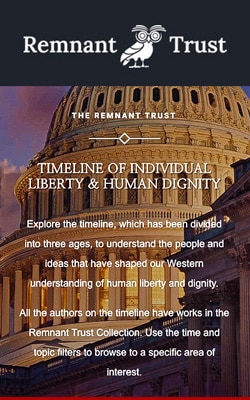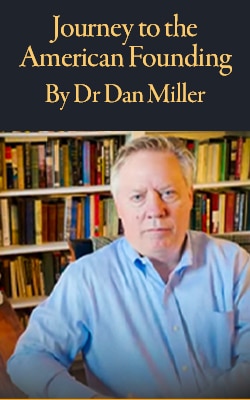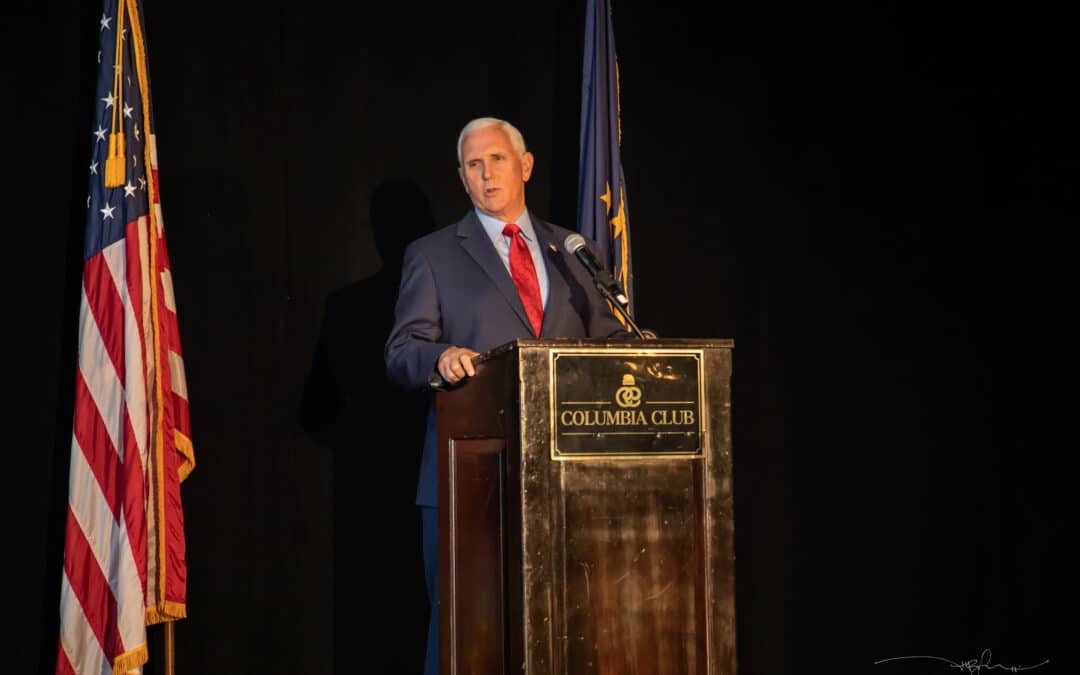“Twenty-Fifth Anniversary Celebration”
Great Conversation, Mike Pence | Indianapolis, IN | October 4, 2022
America’s 48th Vice President, Mike Pence, will give the keynote address at The Remnant Trust’s 25th anniversary celebration this Fall at the Columbia Club in Indianapolis. Michael R. Pence was born in Columbus, Indiana, on June 7, 1959, one of six children born to Edward and Nancy Pence. As a young boy he had a front row seat to the American Dream. After his grandfather immigrated to the United States when he was 17, his family settled in the Midwest. The future Vice President watched his Mom and Dad build everything that matters—a family, a business, and a good name. Sitting at the feet of his mother and his father, who started a successful convenience store business in their small Indiana town, he was raised to believe in the importance of hard work, faith, and family. Vice President Pence set off for Hanover College, earning his bachelor’s degree in history in 1981. While there, he renewed his Christian faith which remains the driving force in his life. He later attended Indiana University School of Law and met the love of his life, Second Lady Karen Pence.
Classical works exhibition included:
-
- Leviathan by Thomas Hobbes, 1651
- Two Treatises of Government by John Locke, 1694
- Du contract social by Jean-Jacques Rousseau, 1762
- Discourses Concerning Government by Algernon Sidney, 1763
- Grundlegung zur Metaphysik der Sitten (Groundwork of the Metaphysic of Morals) by Immanuel Kant, 1785
- Gettysburg Address by Abraham Lincoln, 1863
- A Yankee in Canada by Henry David Thoreau, 1866
- The Conduct of Life by Ralph Waldo Emerson, 1860
- Communist Manifesto by Karl Marx and Friedrich Engels, 1848
- Thoughts on the Cause of the Present Discontents by Edmund Burke, 1770
- Principles of Political Economy by Thomas Robert Malthus, 1820
- Proposals for an Economical and Secure Currency; with Observation on the Profits of the Bank of England, as they Regard the Public and Proprietors of Bank Stock by David Ricardo, 1816
- Three Lectures on the Cost of Obtaining Money by Nassau William Senior, 1829-1830
- The Theory of Moral Sentiments by Adam Smith, 1759
- An Inquiry into the Nature and Causes of the Wealth of Nations by Adam Smith, 1776
- The History of the Decline & Fall of the Roman Empire by Edward Gibbon, 1777-1789
- The History of the the Polynesian War by Thucydides, 1550
- Thoughts of by Marcus Tullius Cicero, 1754
- Historiae by Herodotus, 1558
- The Works of… by Geoffrey Chaucer, 1687
- Fables by Aesop, 1692
- The Vision; or, Hell, Purgatory, and Paradise by Dante Alighieri, 1814
- The Famous History of the Life of King Henry the Eight by William Shakespeare, 1632
- First Acts of Congress — containing 1st Octavo printing of the Bill of Rights by the United States Congress, 1789
- United States Constitution, 1787
- Declaration of Independence, 1777
- The Federalist by Alexander Hamilton, James Madison, John Jay, 1788
- Articles of Confederation, 1789
- Politiques, Or Discourses of Government by Aristotle, 1598
- Magna Carta, ca 1350
- The Consolation of Philosophy by Anicius Manlius Severinus Boethius, 1400-1425
- Gorgias by Plato, 1475-1480
- De Officiis by Cicero, 1446
- Summa Theologiae by Thomas Aquinas, 1475
- Citie of God by St. Augustine, 1610
- The New Testament (Wycliffe Bible), 1731
- Liberty of a Christian Man, 1579
- Freedom of Will by Jonathan Edwards, 1775
- Our Enemy, The State by Albert Jay Nock, 1935
- Common Sense by Thomas Paine, 1776
- Social Statics by Herbert Spencer, 1851
- Sermones de tempore super Evangelia et Epistolas by Hugo de Prato Florido, 1433
- An Oration Delivered Before the Phi Beta Kappa Society, at Cambridge by Ralph Waldo Emerson, 1837
- The Morals of by Confucius, 1780
- Bhagavad-Gita, 1823
- Enoch I, 1450-1500
- Qur’an, 18th Century
- The King James Bible He Version, 1611
- The Praise of Folly by Erasmus, 1549
- The Common-Wealth of Oceana by James Harrington, 1656
- Utopia by Thomas More, 1624
- Nineteen Eighty-Four by George Orwell, 1949
- The Republic by Plato, 1763
- My Bondage My Freedom by Frederick Douglass, 1855
- A Vindication of the Rights of Woman: with Strictures on Political and Moral Subjects by Mary Wollstonecraft, 1792
- The Constitution of the Pennsylvania Society, for Promoting the Abolition of Slavery by Benjamin Franklin and Benjamin Rush, 1787
- The Unconstitutionality of Slavery by Lysander Spooner, 1839 and 1845
- Uncle Tom’s Cabin by Harriet Beecher Stowe, 1852
- A Short History of Standing Armies in England by John Trenchard, 1698
- Elements by Euclid, 1545
- Dialogue Concerning the Two Chief World Systems by Galileo Galilei, 1710
- The Mathematical Principles of Natural Philosophy by Isaac Newton, 1729
- Hippocratis Coi Medicorum Omnium … Omnia (Opera) by Hippocrates of Kos, 1558
- Frankenstein by Mary Shelley, 1869
- Nuremburg Chronicle by Hartman Schedel, 1500




